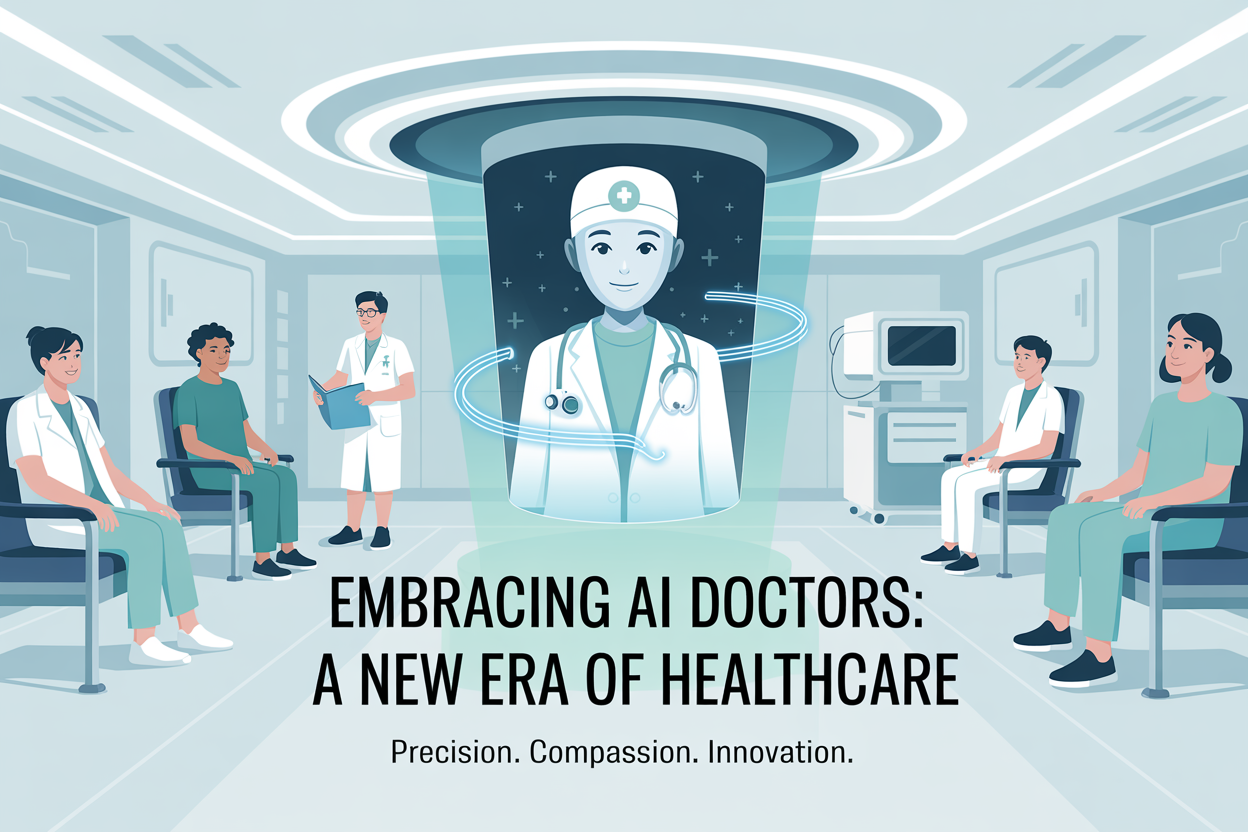Embracing AI Doctors: A New Era of Healthcare

We often expect our doctors to perform flawlessly, acting as demi-gods with endless knowledge and unwavering precision. However, the reality is that doctors, like everyone else, face immense pressures, work long hours, and operate with limited resources. Despite efforts to improve conditions, including hiring more staff and enhancing systems, the inherent limitations of human cognition often fall short, particularly under the demands of modern healthcare.
The Role of AI in Medicine
Given the crucial nature of patient care, we must consider who or what is best equipped to deliver it. While AI may initially spark suspicion, ongoing research reveals its potential to address chronic problems in healthcare, such as misdiagnosis, accessibility, and inefficiencies. Studies indicate that nearly everyone will likely experience a diagnostic error at some point in their lives, with significant consequences: roughly 5% of primary care visits in England result in a missed diagnosis, leading to dire outcomes for many patients.
The advancements in AI provide a compelling counterpoint. AI systems can swiftly analyze vast datasets, identifying patterns and issues that humans might overlook. For example, research has demonstrated that AI can achieve accurate diagnoses of rare diseases more effectively than human doctors, presenting a case for incorporating AI technologies into clinical practice.
Addressing Access and Equity
Furthermore, AI has the potential to democratize access to healthcare, particularly for marginalized populations who often encounter barriers to essential services. The rise of AI tools could alleviate the strain on traditional appointment-based models, enabling patients to receive timely assistance without the logistical challenges associated with in-person visits.
For instance, under the UK’s Labour government plan, health secretary Wes Streeting has proposed initiatives allowing patients to discuss health concerns with AI via the NHS app. This development could streamline access to healthcare advice, particularly for individuals who struggle with mobility or other constraints.
Challenges Remain
Despite these promising prospects, barriers to AI adoption remain significant. Issues such as internet access inequality still persist, with millions lacking the necessary digital skills to engage with AI health solutions. Furthermore, biases and ethical concerns surrounding AI algorithms need thorough examination to ensure equitable outcomes across diverse populations.
While discussions around the flaws of AI in healthcare tend to dominate the narrative, it is essential to compare the limitations of AI with the problems inherent in the existing healthcare systems, which can often be frustrating and inadequate for many users.
Conclusion: A Balanced Perspective
AI represents an evolving frontier in healthcare, promising to improve diagnostic accuracy, enhance accessibility, and potentially save lives. Yet, as we embrace these technologies, careful consideration must be given to the existing systems to mitigate risks and maximize the benefits of AI.
Charlotte Blease is a health researcher and the author of *Dr Bot: Why Doctors Can Fail Us – and How AI Could Save Lives*, published by Yale on 9 September.